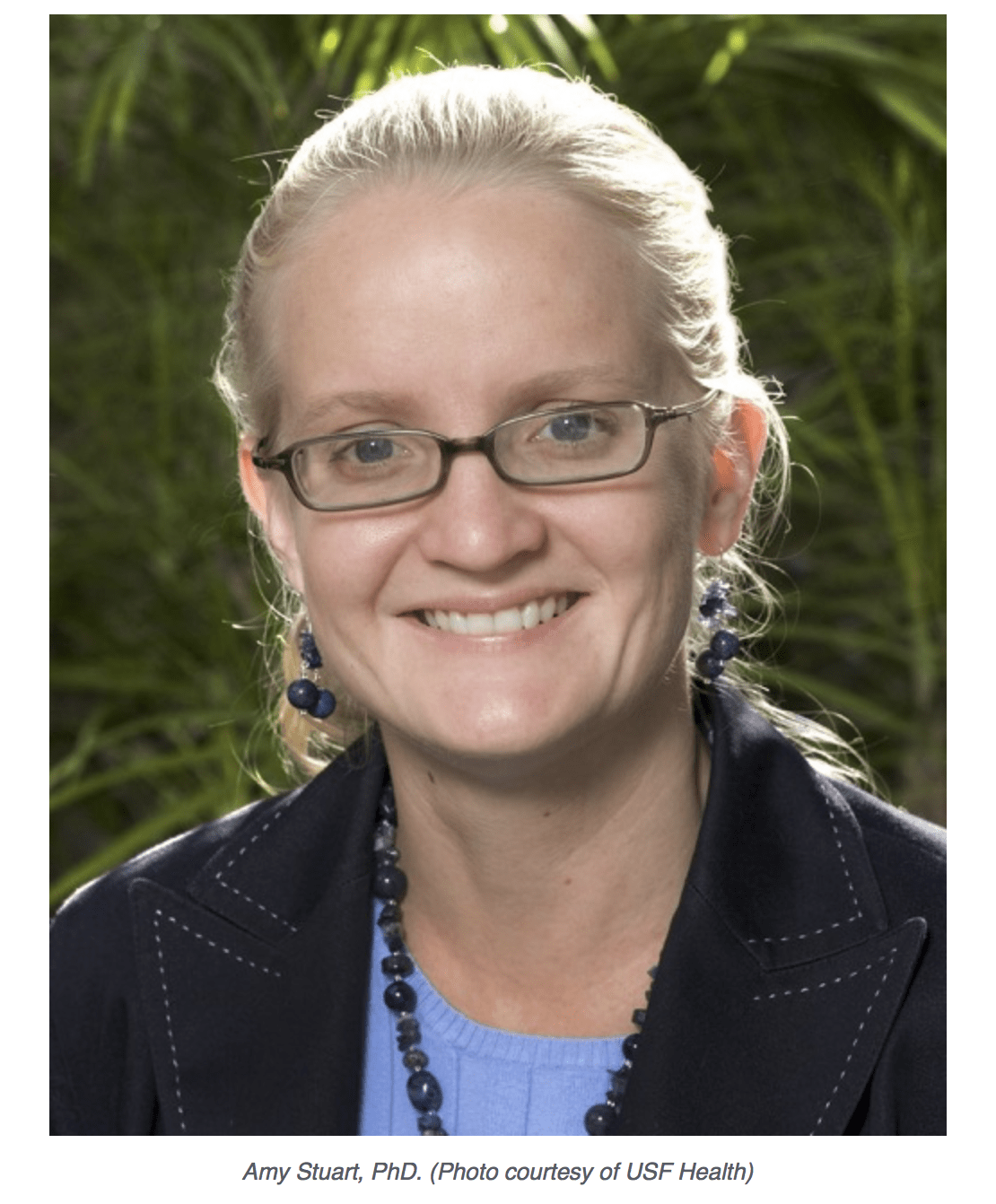
Dr. Amy Stuart, a professor of environmental and occupational health at the USF College of Public Health (COPH), has recently published a paper focused on air pollution and exposure inequality within the Tampa community. The paper, entitled “Agent-based modeling to estimate exposures to urban air pollution from transportation: Exposure disparities and impacts of high-resolution data,” will be published in the May edition of Computer, Environment and Urban Systems. Her latest study developed a modeling system that can be used to illustrate what factors, such as transportation systems and air quality, impact air pollution exposure inequality for residents of Tampa. “We used a mathematical model that provides estimates of the locations and movement of individual people and vehicles in space throughout a typical weekday. Then we used physics and chemistry-based models that simulate the release of pollution from vehicles along with the movement of pollutants,” said Stuart. “This provides estimates of the locations and changes in pollutant levels during the day.” The study, funded by the National Science Foundation and the U.S. Department of Transportation, found that people of lower socioeconomic status and working-age adults, among other groups, are at a greater risk of exposure. “Knowledge of exposure disparities can empower people to more effectively advocate for their own health interests when public-policy decisions about transportation are being made.” Stuart believes that educating these groups about their risks is key to decreasing the current exposure inequality that exists. “Ultimately, I would like to combine the work that we are doing with that of others interested in equity-related aspects of urban transportation systems—from system safety to physical activity to access to resources,” said Stuart. To learn more about Dr. Stuart’s research, view our video.
Story by Cody Brown, USF College of Public Health